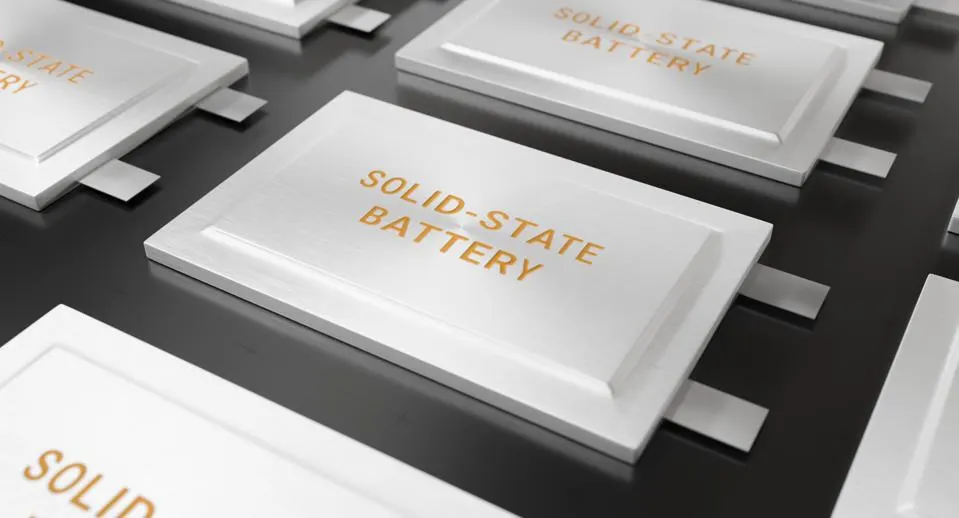Solid-state batteries (SSBs) have the potential to revolutionize energy storage, particularly in the electric vehicle (EV) sector.
Unlike traditional lithium-ion batteries, which use liquid or gel electrolytes, SSBs utilize a solid electrolyte, offering considerable improvements in both performance and safety.
Although the advantages are promising, SSBs are still under development. Major hurdles, such as scaling up production and reducing costs, need to be addressed before these batteries can be introduced to the EV market.
This week, EV Magazine highlights the top 10 companies leading the charge in SSB technology.
10. Nissan
- CTO: Kunio Nakaguro
- Founded: 1934
The Japanese multinational automaker Nissan is making significant strides in advancing solid-state battery technology to improve its EV offerings.
The company has set up a prototype production facility in Kanagawa Prefecture, where it is focused on research that spans from the molecular level to the integration of these batteries into vehicles.
Nissan’s goal is to double the energy density of traditional lithium-ion batteries and to complete its first solid-state cells by 2025.
Mass production is expected to begin in 2029, with cost reduction goals aiming for US$75 per kWh by 2028. These developments are expected to lead to faster charging, enhanced performance, and superior EV applications.
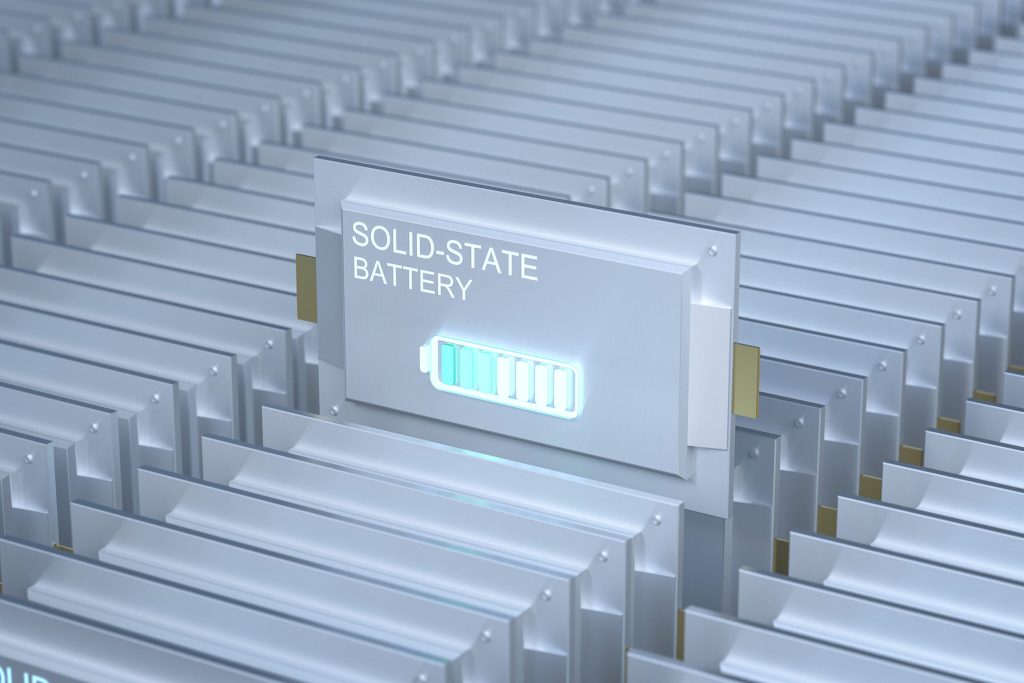
9. CATL (Contemporary Amperex Technology Co., Limited)
- CTO: Wu Kai
- Founded: 2011
Contemporary Amperex Technology Co., Limited (CATL), the largest lithium-ion battery manufacturer globally, is making substantial progress in the development of solid-state batteries.
CATL has committed to solid-state battery technology for nearly ten years, with over 1,000 researchers working on this initiative. Among its breakthroughs are a hybrid “condensed state battery” and cells with an impressive energy density of 500 Wh/kg.
Prototype production is currently in progress, and small-scale manufacturing is scheduled to begin in 2027. Despite ongoing challenges, CATL is actively refining charging speed and cycle life as part of its efforts toward eventual commercialization.
8. NIo
- CEO: William Li
- Founding: 2014
NIO, a leading Chinese EV manufacturer, is pioneering solid-state battery integration with its 150 kWh semi-solid-state battery, which was developed in partnership with WeLion.
The technology enables a driving range of up to 577 miles and is compatible with existing NIO models, making battery swapping an industry disrupter.
With over 2,300 battery swap stations in operation, NIO is strategically placed to support the transition to solid-state batteries.
Its partnerships with CATL and BYD further boost research efforts, while advanced battery health monitoring systems ensure long-term durability and optimal performance.
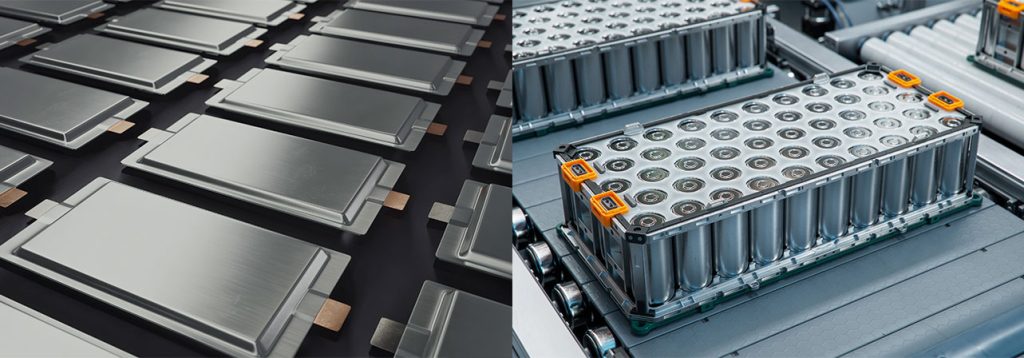
7. Volkswagen Group
- CTO: Thomas Schmall-von Westerholt
- Founded: 1937
Volkswagen is making notable advancements in solid-state battery technology through its long-term collaboration with QuantumScape.
In July 2024, Volkswagen’s battery division, PowerCo, secured a licensing agreement to begin mass production of solid-state cells, starting with an annual capacity of 40 GWh.
The technology, which incorporates a lithium-metal anode and a proprietary ceramic separator, promises to deliver 30% more driving range and ultra-fast charging.
Volkswagen’s unified cell concept ensures that the batteries will integrate smoothly into future electric vehicles (EVs). Mass production is anticipated to begin later this decade as the company continues its testing and validation processes.
6. LG Energy Solution
- CTO: Je-Young Kim
- Founded: 2020
LG Energy Solution is making significant strides in the development of solid-state battery technology through research, strategic partnerships, and material innovations.
In collaboration with UC San Diego, the company has developed a long-life all-solid-state battery that is capable of fast charging at room temperature.
The battery’s micro-silicon anode improves durability, allowing it to exceed 500 cycles while retaining 80% of its capacity.
Partnerships with Factorial and Kumho Petrochemical are further advancing material development, while LG focuses on pouch-type solid-state batteries to enhance efficiency.
With commercialization set for 2030, LG is playing a key role in driving the next generation of battery technology forward.
5. Samsung
- CTO: Koh Joo-young
- Founded: 1938
Samsung SDI is making remarkable strides in solid-state battery technology, aiming for an energy density of 900 Wh/L 40% higher than the energy density of its current prismatic batteries.
Its proprietary solid electrolyte and anode-less technologies significantly enhance both performance and safety. In 2023, Samsung SDI launched the world’s largest pilot production line, known as ‘S-Line,’ with mass production scheduled to begin in 2027.
Initially focusing on premium electric vehicles (EVs), Samsung’s roadmap includes plans for ultra-fast charging and long-life batteries. These innovations position Samsung SDI as a leading player in the development of next-generation EV batteries.
4. Panasonic
- CTO: Tatsuo Ogawa
- Founded: 1923
Panasonic is making significant progress in solid-state battery technology through strategic collaborations and focused research.
In partnership with Toyota through Prime Planet Energy & Solutions, the company is concentrating on sulfide-based solid electrolytes to improve ion transfer.
EV production is scheduled for 2027, with industrial applications such as drones and factory robots expected to follow by 2029.
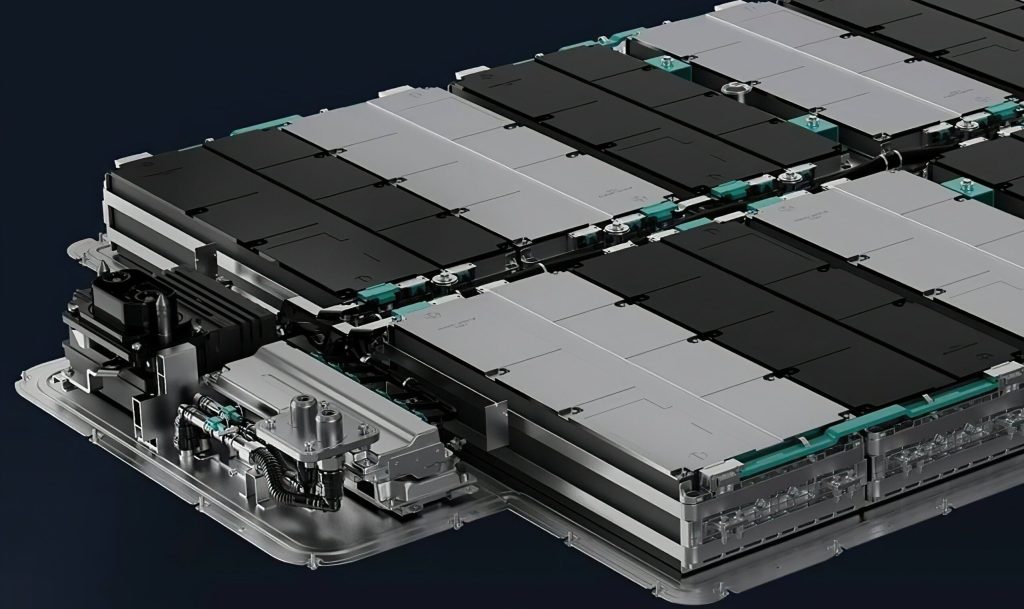
Panasonic’s efforts aim to enhance energy density and durability, while also leveraging its expertise in lithium-ion batteries to support scalable manufacturing.
The company is taking a phased approach, focusing on industrial use initially before expanding into automotive applications, ensuring a smooth path toward commercialization.
3. BYD
- CTO: Sun Huajun
- Founding: 1995
BYD (Build Your Dreams) is making significant progress in solid-state battery technology, further solidifying its leadership position in the electric vehicle (EV) industry.
The company is actively researching both oxide and sulfide-based solid electrolytes and holds numerous patents, with a target energy density of up to 500 Wh/kg.
BYD plans to produce small batches of solid-state batteries by 2027, initially equipping luxury models before expanding to mass-market electric vehicles.
The company aims to reach 120,000 vehicles by 2033, and remains focused on overcoming challenges related to cost and integration to facilitate widespread adoption.
2. Solid Power
- CTO: Joshua Buettner-Garrett
- Founding: 2011
Solid Power is a pioneering developer of all-solid-state battery technology, with a focus on sulfide-based solid electrolytes for electric vehicles (EVs).
The company has created a proprietary electrolyte designed to replace traditional liquid and gel-based systems, improving both safety and energy density.
Its solid-state cells incorporate a silicon-based anode, targeting over 500 miles of driving range for EVs and aiming to double the lifespan of lithium-ion batteries.
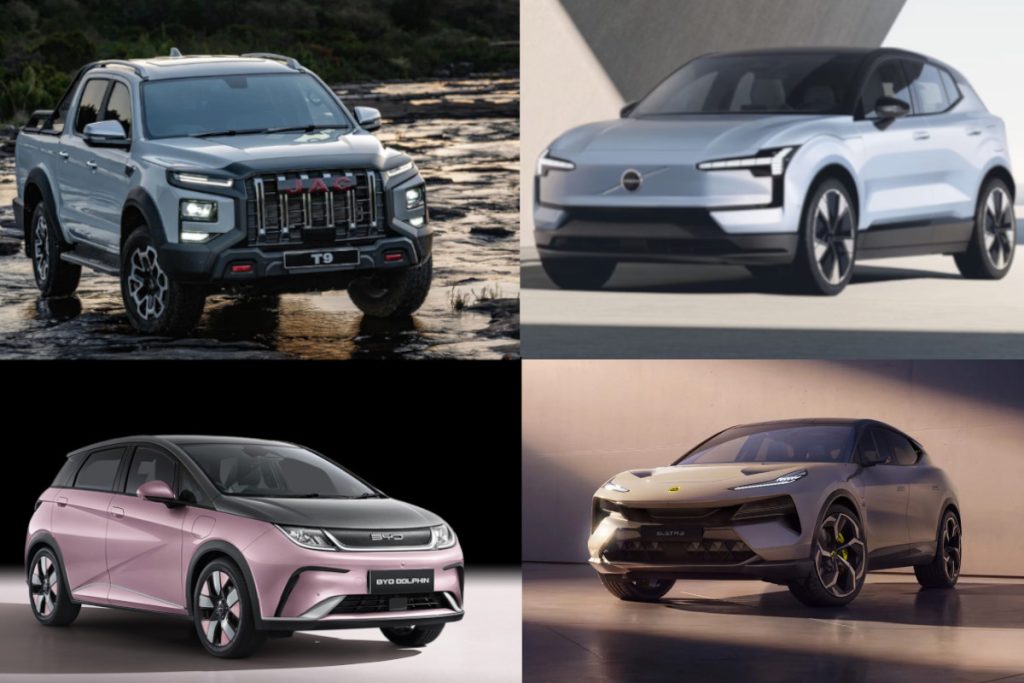
Having completed pilot production lines, Solid Power is working with partners such as BMW, Ford, and SK Innovation to accelerate the commercialization of its technology.
With a cost target of US$85/kWh, Solid Power’s advancements could play a crucial role in the development of next-generation EVs.
1. Toyota Motor Corporation
- CTO: Hiroki Nakajima
- Founding: 2008
Toyota is leading the way in solid-state battery development, aiming to revolutionize electric vehicle (EV) technology.
Since the creation of its Battery Research Division in 2008, Toyota has achieved significant breakthroughs, including a 20% increase in theoretical range.
In partnership with Panasonic through Prime Planet Energy & Solutions, the company plans to begin production by 2026, with ambitious goals of achieving a 1,000 km driving range and 10-minute fast charging.
Toyota is targeting an annual production capacity of 9 GWh, refining its technology for commercialization between 2027 and 2028, with mass production expected to begin by 2030.
These efforts position Toyota as a key player in the development of next-generation EV batteries.

